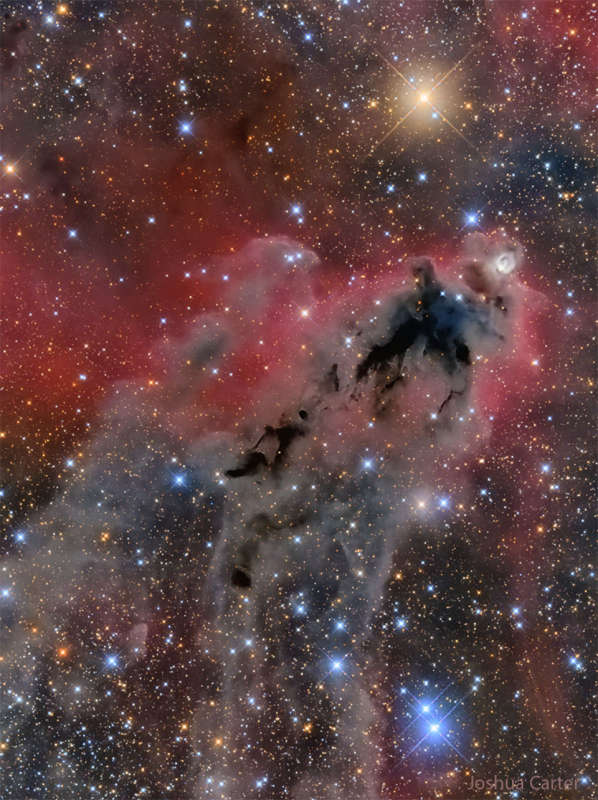Credit & Copyright: Joshua Carter
Explanation:
To some, the dark shape looks like a mythical
boogeyman.
Scientifically, Lynds' Dark Nebula
(LDN) 1622 appears against a faint
background of glowing hydrogen gas only visible in long telescopic
exposures of the region.
In contrast, the brighter reflection nebula
vdB 62 is more easily
seen just above and to the right of center in the
featured image.
LDN 1622 lies near the plane of our Milky Way Galaxy,
close on the sky to
Barnard's
Loop,
a large cloud surrounding the rich
complex of emission nebulae found
in the Belt and Sword
of Orion.
With swept-back outlines, the
obscuring dust of LDN 1622 is thought
to lie at a similar distance, perhaps 1,500
light-years away.
At that distance, this 2-degree wide field of view
would span about 60 light-years.
Young
stars do
lie hidden within the dark expanse and have been
revealed
in
Spitzer Space Telescope
infrared images.
1999 2000 2001 2002 2003 2004 2005 2006 2007 2008 2009 2010 2011 2012 2013 2014 2015 2016 2017 2018 2019 2020 2021 2022 2023 2024 2025 2026 |
Yanvar' Fevral' Mart Aprel' Mai Iyun' Iyul' Avgust Sentyabr' Oktyabr' Noyabr' Dekabr' |
NASA Web Site Statements, Warnings, and Disclaimers
NASA Official: Jay Norris. Specific rights apply.
A service of: LHEA at NASA / GSFC
& Michigan Tech. U.
|
Publikacii s klyuchevymi slovami:
dark nebula - Orion - temnaya tumannost' - Orion
Publikacii so slovami: dark nebula - Orion - temnaya tumannost' - Orion | |
Sm. takzhe:
Vse publikacii na tu zhe temu >> | |
